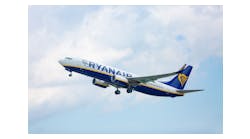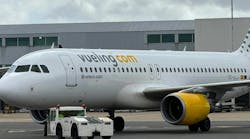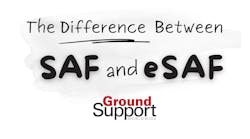Feb. 24—Alaska Airlines was ordered this week to pay $3.2 million to the family of a 75-year-old woman who died after falling down an escalator in an electric wheelchair at Portland International Airport in 2017.
The family of the woman, Bernice Kekona, alleged that Alaska failed to ensure she received the gate-to-gate escort the family requested multiple times.
After a trial in King County Superior Court this month, a jury found Alaska violated the Air Carrier Access Act, which requires airlines to provide certain assistance for passengers with disabilities, including with boarding, deplaning and making connections. .
Kekona arrived in Portland on her way home to Spokane from Maui, where she was visiting family.
According to the family's court filings, Kekona and her family members had requested multiple times that she receive a gate-to-gate escort because she was elderly, hard of hearing and sometimes became confused in unfamiliar places, among other reasons. The family alleged that Alaska failed to communicate those requests to a contractor that would have provided the escort.
Robert Gellatly, an attorney for the family, said Kekona's death was "a tragic failure of communication."
Alaska said in a statement Tuesday, "We're disappointed in the ruling and are evaluating next steps. There is no more important responsibility than the safety and wellbeing of our guests, whether they're in our care or the care of a vendor."
The fall down the escalator left Kekona with multiple injuries, including an Achilles tendon injury that led to an infection, according to the family's attorneys. Doctors later amputated her leg, but she died soon after from infection.
Kekona had traveled before, receiving gate-to-gate help and having "no problems," said her daughter, Darlene Bloyed.
Kekona was "the head of the household," Bloyed said. "She was special to us. She was not just a nobody."
With the jury's decision, Bloyed said, "we got justice."
In court filings, attorneys for the family and the company disagreed about what happened after Kekona landed in Portland.
Alaska Airlines said in a 2019 court filing that Kekona "declined multiple offers of additional assistance and promptly drove away from her arrival gate."
"Passengers often decline previously requested services, as is their right," attorneys for the company wrote.
Attorneys for the family disputed that Kekona declined offers of help. They argued the wheelchair attendants for the contractor, Huntleigh, did not know she needed gate-to-gate assistance, with one of them believing Portland was her final destination.
After the injuries, Kekona told her daughters the wheelchair attendants "put her in her wheelchair in the sky bridge, pointed toward the top of the sky bridge, and when she got to the top of the sky bridge nobody was there to escort her and she became confused. She also told them she mistakenly took the escalator while looking for the elevator," the family's attorneys wrote.
Bloyed said in an interview she spoke to her mother after the fall. "She told me nobody was there," Bloyed said. "She just needed that little bit of help to get to the next gate and she would have been home with me in Spokane."
Alaska did not respond to a question Tuesday about whether it implemented any policy changes in response to Kekona's death. Gellatly, the attorney for the family, said he believes Alaska later began using a digital system in Portland to better communicate requests for assistance.
Gellatly said he expects Alaska to appeal the jury's decision.
___
(c)2021 The Seattle Times
Visit The Seattle Times at www.seattletimes.com
Distributed by Tribune Content Agency, LLC.



